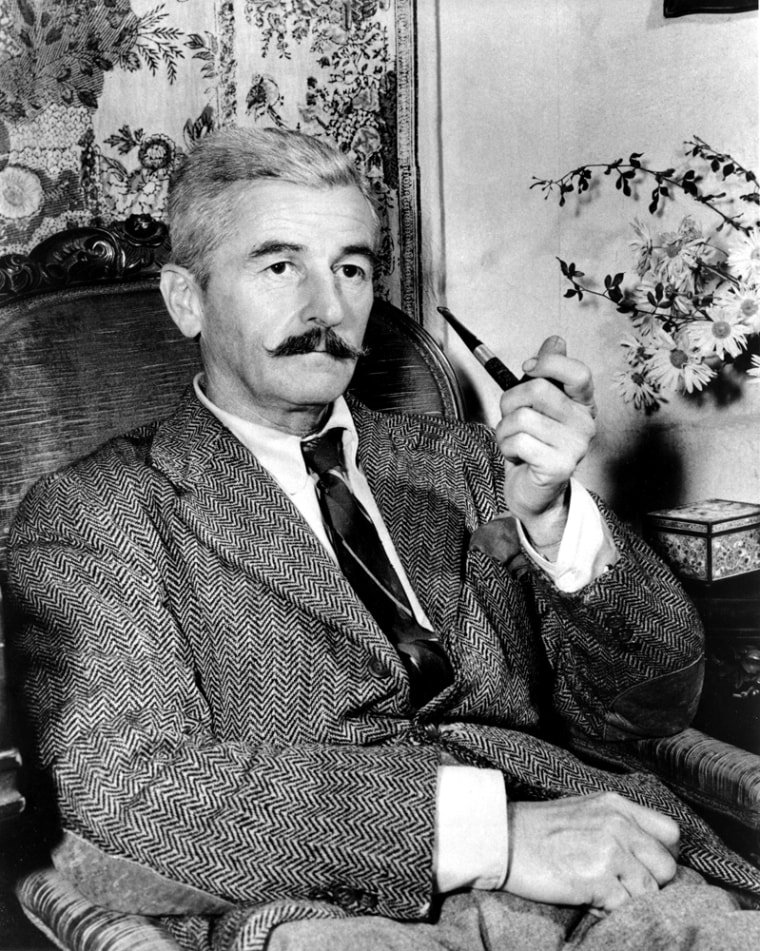Most of the works of literary master William Faulkner chronicle a troubled, tortured South.
But an original handwritten manuscript donated to Southeast Missouri State University’s Center for Faulkner Studies shows his generous, funny side.
The university announced the acquisition to its collection of Faulkner letters, manuscripts and artifacts on Tuesday. The six-paragraph, one-page manuscript, titled “Sorority,” is not a serious, literary work.
“It’s an interesting personal and biographical document,” said Robert Hamblin, founding director of the Faulkner center. “It does say something about his personality and openness. He liked young people, and would do things for them he would not do for adults.
“He was willing to give a young woman a gift. It shows a personal, humorous side of him to write this.”
Faulkner wrote the manuscript in 1933 for a friend of his stepdaughter; both attended a Mississippi junior college. While on a visit to Rowan Oak, Faulkner’s home in Oxford, Miss., the friend asked him to copy her sorority pledge in his handwriting.
He did one better.
‘He ... composed his own sorority pledge’
“He went to his study and composed his own sorority pledge for her,” Hamblin said. “It’s one of a kind. She kept it for all those years.”
The manuscript starts out, “Good will is the monarch in this house.”
Written in the voice of the sorority, it uses poetic imagery and analogy to list character traits a sorority seeks to develop in young women. It ends with “I am the university of friendship, the college of sisterly love, the school for the better making of women. I am the sorority.”
The young woman, who couldn’t decipher Faulkner’s cryptic handwriting, never believed it was anything but the sorority pledge she asked him to copy.
Faulkner scholar Jane Isbell Haynes, 86, said Tuesday that the woman — by then in her 70s — called and offered it to her in 1984 after learning about Haynes’ research of Faulkner’s life from a Memphis, Tenn., newspaper article. Haynes and another Faulkner scholar deciphered the handwriting and saw that it was an idealized version of a sorority, not the sorority pledge the college student thought he had copied.
Even as the former college student aged, she “never believed it,” Haynes said. “She was a new sorority member. She wanted something to hang on her wall.”
Haynes became an avid Faulkner collector and author of journal articles and books about the author’s life and works, including two books about his ancestry and background in Mississippi.
Interest born during childhood visits
Haynes, formerly of Memphis but now of Irvine, Calif., heard Faulkner lore all her life, but especially during childhood summers she spent in Mississippi with her grandparents, who lived in the same county as Faulkner’s relatives.
“I spent many summers hearing about the Faulkner families,” she said. “I just needed to go to the courthouse and verify everything.”
Haynes previously had donated the research files for her two books, and other Faulkner materials, to the center. She donated the “Sorority” manuscript to the Faulkner center because she wanted it preserved for future generations. She has poor vision and can’t read Faulkner like she used to, but he still inspires her.
“It’s hard to turn the interest loose,” she said.
Hamblin said Haynes’ gift is a major event, because most Faulkner items by now are in libraries and museums, and not held by individuals.
“There couldn’t be that much more Faulkner out there to be collected,” he said.
